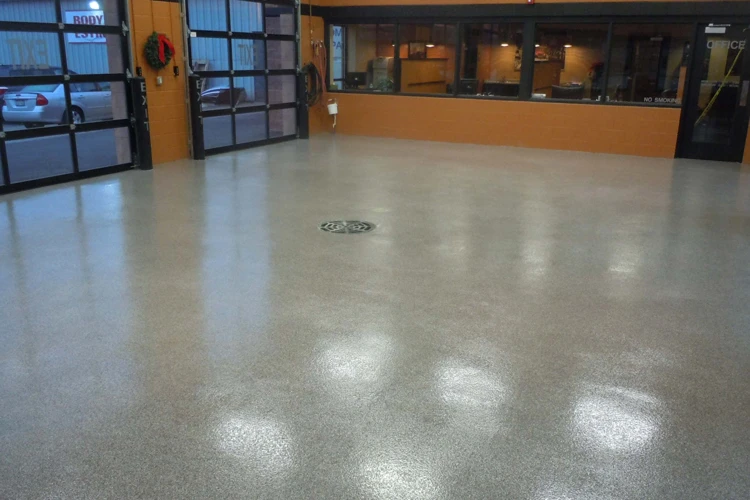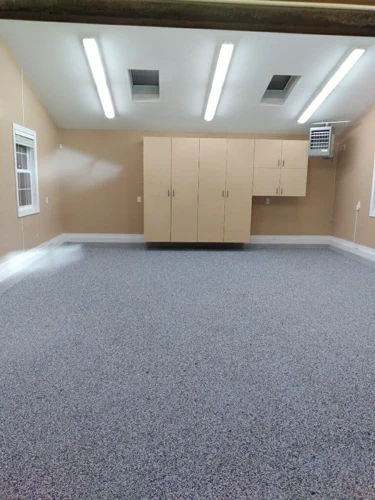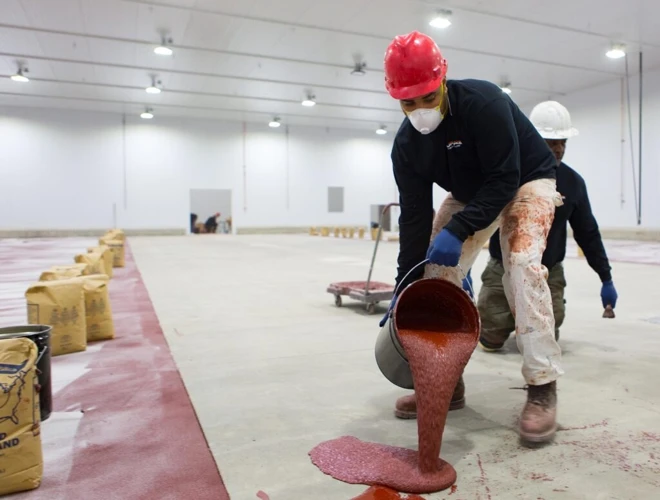When it comes to choosing a coating for a project, understanding the difference between epoxy paint and regular paint is crucial. Each has its unique properties and applications that can make or break the success of a finish. In this post, we will delve into the specifics of epoxy vs paint comparison, examining their chemical make-up, application processes, and the environments in which they perform best.
Epoxy Paint and Its Uses
Epoxy paint is renowned for its impressive resilience and adhesive properties. This coating is a thermo-setting resin that, once cured, forms a hard, durable surface. It’s commonly utilized in environments that demand a high-performance finish, such as in industrial settings, garages, and hospitals. The advantages of epoxy coatings are particularly evident in areas that experience heavy foot traffic, exposure to chemicals, or where a sanitary surface is essential.
Regular Paint Uses in Everyday Applications
Regular paint, on the other hand, is typically used for aesthetic purposes and general protection against the elements. It’s the go-to choice for residential walls, exteriors, and furniture. Regular paint uses include providing color and some degree of protection to surfaces, but it doesn’t offer the same level of durability or resistance as epoxy paint does. Its application is straightforward, making it suitable for a wide range of DIY projects.
Epoxy vs Paint Comparison: A Detailed Analysis
When selecting a coating, the epoxy vs paint comparison becomes essential. This analysis will help you understand which option is more suited for your specific project requirements.
Chemical Composition and Properties
The key to the superior performance of epoxy paint lies in its chemical composition. Epoxy consists of a resin and a hardener that, when mixed together, undergo a chemical reaction to form a tough, plastic-like material. Regular paint is a pigment suspended in a liquid solvent that evaporates, leaving the pigment on the surface. These differences in composition lead to varying properties between the two types of coatings.
Application Process and Requirements
Applying epoxy paint requires careful preparation and timing, as the two components must be mixed just before use and applied within a limited window of time. The surface needs to be clean and free of grease or oil for the epoxy to adhere correctly. In contrast, regular paint is less demanding in its application, allowing for more flexibility and a longer timeframe to work with.
Paint Durability and Life Span
- Epoxy paint forms a bond with the surface it’s applied to, resulting in exceptional paint durability and resistance to impact, stains, and chemicals.
- Regular paint, while protective, is more susceptible to scratches, peeling, and fading, especially in high-traffic areas or under harsh conditions.
- The life span of epoxy coatings can significantly exceed that of regular paint, making it a more cost-effective solution in the long run.
Advantages of Epoxy Coatings Over Traditional Paint
When comparing epoxy paint benefits to those of traditional paints, the former often comes out on top, especially in demanding environments.
Epoxy Paint Benefits for Industrial and Commercial Spaces
Epoxy coatings are favored in industrial and commercial spaces for their robustness and maintenance ease. They resist a wide array of substances, from oil and gasoline to bleach and potent cleansers. Furthermore, epoxy surfaces are seamless, which greatly reduces the accumulation of dirt and bacteria, a crucial aspect for healthcare and food preparation environments.
Epoxy for Floor Coating: A Superior Choice?
When it comes to floors, epoxy for floor coating is frequently considered superior. It withstands heavy machinery, frequent cleaning, and high foot traffic without losing its luster or integrity. This makes it an ideal choice for warehouses, commercial kitchens, and showrooms where appearance is as important as functionality.
Practical Insights: Paint Selection for Your Project
The choice between epoxy paint and regular paint can significantly influence the outcome of your project. Here’s how to evaluate which is best suited for your needs.
Evaluating the Needs: Epoxy Versus Traditional Paint
When evaluating the needs of your project, consider the conditions the surface will face. If you anticipate heavy wear, exposure to chemicals, or the need for a sanitary surface, epoxy paint might be the better choice. For projects that require less durability and are more aesthetic in nature, regular paint will typically suffice.
Cost-Effectiveness and Long-Term Value
While the upfront cost of epoxy might be higher than that of regular paint, its long-term value is often unbeatable. Due to its extended lifespan and minimal need for touch-ups, epoxy can end up being more cost-effective over time. Regular paint may require more frequent reapplication, which can add up in costs and labor.
When considering a home makeover, paint choices such as epoxy vs. regular paint can have a significant impact on the results. If you’re weighing the benefits of doing it yourself versus hiring a professional, our articles on DIY vs. professional interior painting and DIY vs. professional painting can provide you with valuable insights to help you make an informed decision. Additionally, to understand the specifics about one of the most durable paints available, be sure to read our comprehensive guide on epoxy paint and how it compares to regular paint for various home projects.
Conclusion: Making the Right Choice for Your Coating Needs
In conclusion, the decision between epoxy paint and regular paint comes down to the specific requirements of your project. Epoxy offers unparalleled durability, making it an excellent investment for high-stress environments, while regular paint is ideal for general applications where aesthetics are the primary concern. By understanding the properties and benefits of each, you can make an informed paint selection that will ensure the longevity and success of your finish.



